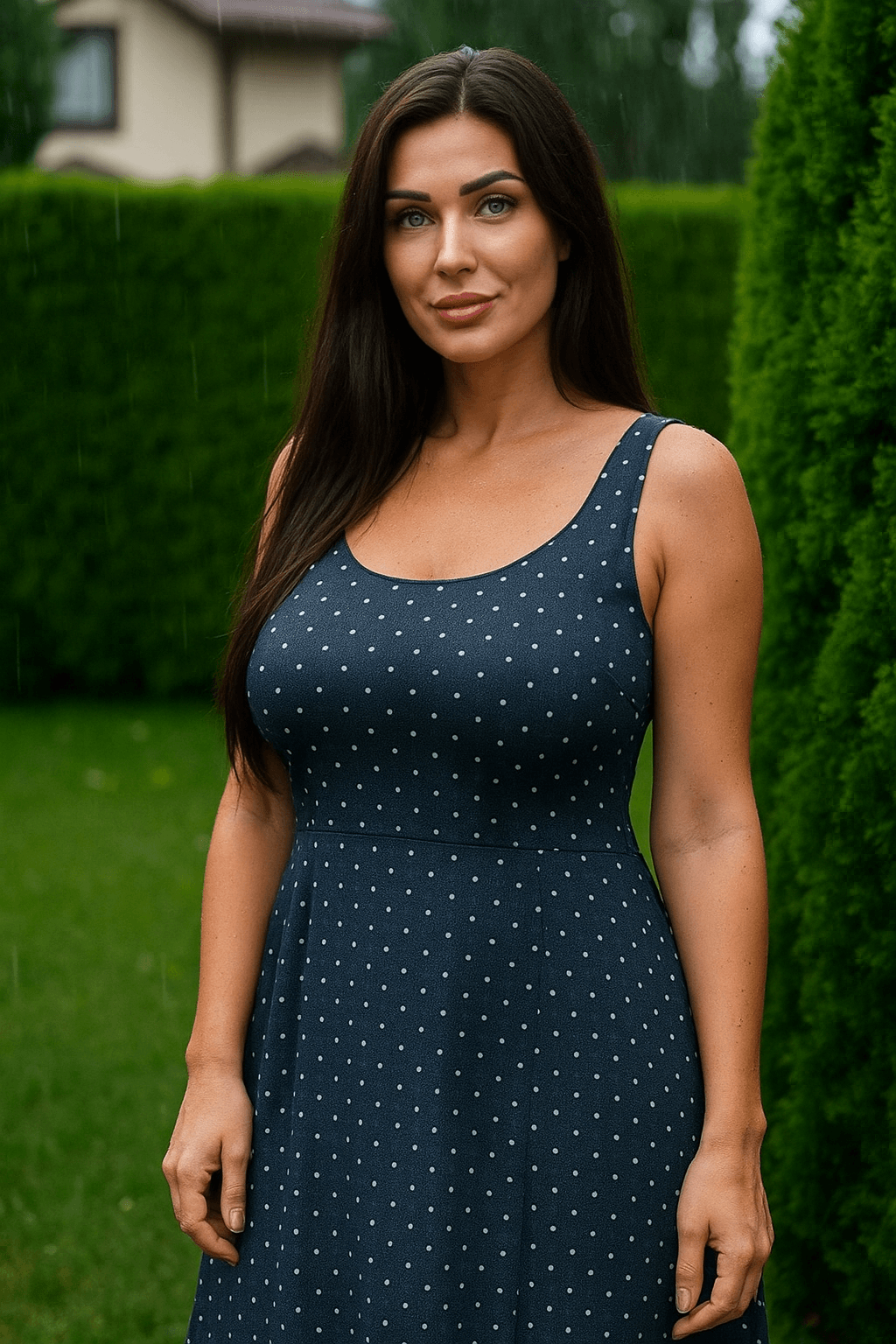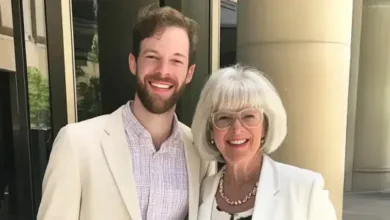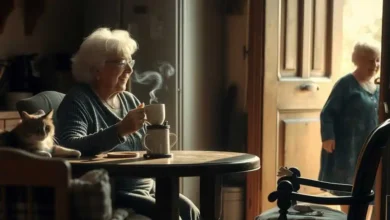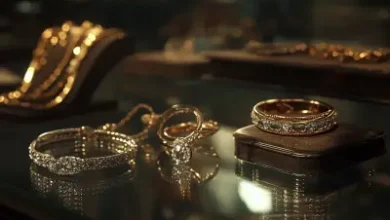“I am forced to inform you that, as the rightful heir, I demand that the house be vacated.”

Alyona froze in surprise at those words…
As far as she could remember, Alyona had always moved houses several times.
First, following her parents: dormitories, rented apartments, relatives’ country houses…
Then, alone. After the accident that took both their lives, the world lost all its colors for her.
Every place she settled in felt less like a home and more like a temporary shelter.
Until one day, Alyona saw a simple ad: “Room for rent to a decent young lady. Owner, elderly lady.”
The house was in an old neighborhood, with peeling fences and a slightly wobbling mailbox.
But the windows shone from being so clean, and the porch was decorated with baskets of petunias.
The door was opened by a thin woman, about seventy years old, wearing a soft sweater and a spotless white apron.
“Alexandra Semënovna,” she introduced herself, “but you can call me Grandma Shura. If you want, call me that.”
Her voice sounded like the creak of an old gate, but her eyes shone with warmth and kindness — the look a perfect grandmother would have.
Although Alyona had never known her own grandmothers, she felt an immediate connection.
The room offered was small: slanted ceiling, a little window, simple wooden furniture, and an old bed with crocheted pillows.
But there was something about that space that brought peace to Alyona, as if she had lived there before, but forgotten.
Grandma Shura didn’t ask many questions, but at night, while preparing herbal tea in a large pot, she liked to talk about the weather, how different everything was back then, and how happy she was to have company in the house again.
“I thought I’d die alone, unnoticed by anyone. But then you arrived…” the old lady confided.
“I feel this house will be yours one day. You didn’t come into my life by chance.”
At first, Alyona was shy and tried to change the subject with jokes, but day after day she realized Grandma was right.
She had no one but Alyona, the old cat Barsik, and the flowerbeds she watered religiously every morning, protected by a big straw hat.
In spring, however, Alexandra Semënovna’s health began to worsen: shortness of breath, coughing fits at night, weakness, and memory lapses.
One day, she fell in the kitchen holding a pot. Luckily, Alyona was home.
She called an ambulance, accompanied Grandma to the hospital, brought broths and juices every day, listened carefully to the doctors.
“The diagnosis is serious,” one of them said. “There is hope, but the medicine is expensive.”
The next day, Alyona made a difficult decision: she took her only valuable possession — a gold ring, a gift from her parents on her 16th birthday.
She looked at it for a long time, squeezed it in her palm, and whispered:
“I have to save Grandma Shura. I can’t do anything else.”
She went to the pawnshop.
Grandma Shura began to improve slowly, but surely.
Soon she was telling stories again: about her handsome husband, her youth in theater groups, how Alyona had become like a daughter to her.
But in summer, the illness returned, without warning.
This time, neither care nor medicine helped.
She passed away quietly while sleeping.
Alyona woke to an immense emptiness.
She cried for a long time. Then, she called doctors, contacted the funeral home, and put on the black skirt she kept for special occasions.
She didn’t want to think about the future — she just wanted to stay in that house, pet the cat, and hear the floor creak.
Time passed.
Alyona continued living in the house, keeping everything as it was in Grandma Shura’s time.
Every morning she watered the flowers, trying to preserve the old lady’s spirit.
But uncertainty about the future weighed more and more: what would come next?
One day, someone knocked at the door.
Alyona was startled but went to open it.
At the entrance stood a tall man, with a travel bag in hand.
“Good morning,” he began hesitantly. “I’m Aleksei, Alexandra Semënovna’s son.”
Alyona’s heart raced. She had never heard of him, and the idea of having to leave the house froze her chest.
“I… was very close to your mother,” he said quietly. “But she never spoke about you.”
“No surprise,” Alyona replied.
“I was born late, and there was never understanding between us.
When I decided to join the army, instead of going to university as she wanted, I started working.
She gave me an ultimatum: either live as she wanted, or disappear from her life.
I left.
Later I tried to write, I wanted to come back, but she returned the letters unopened.
Now that she’s gone, I’ve come back to the house my father built, and I intend to live here.
So…”
Alyona felt the ground disappear beneath her feet but gathered courage and answered:
“But Grandma Shura wanted me to stay in this house. I took care of her when she was sick.”
Aleksei ignored her.
He remained silent, looking at the house as if searching for memories.
Then, with effort, he said:
“As you can imagine, I am the rightful heir. You will have to leave.”
Alyona understood she could no longer stay there.
She would have to leave and start over.
But she felt a bitter pain: that house was much more than a temporary shelter.
Seeing her lost expression, Aleksei added:
“I won’t evict you immediately. You can stay until you find another place.”
A few days later, while searching through his mother’s belongings, Aleksei found an old box.
Inside were photos, letters never sent that Alexandra Semënovna had written to him but didn’t have the courage to send, and a will.
Yes, a will — a document he didn’t expect to find.
In it, she declared that the house belonged equally to him and Alyona.
Aleksei was shocked.
He knew his mother could have disinherited him, but instead, she made a generous gesture.
He spent the night reading the letters and wiping away unexpected tears.
“My dear son,” Alexandra Semënovna wrote, “I always dreamed you would return to this house, but I could never overcome my pride.
After I expelled you, I never had the courage to ask for forgiveness.
I tried, but pride won.
I would have gone mad with remorse if Alyona had not come into my life.
She became a part of me, my support and comfort.
She deserves to be an heir to this house as much as you do, my son.
Forgive me, if you can, for everything.”
In the box was also the ring.
She explained she discovered Alyona had sold it to buy medicine for her — and that she recovered it at the pawnshop.
She wanted it to be a consolation for Alyona after her death.
The next morning, Aleksei decided not to delay the conversation any longer.
He told Alyona about the will.
“I found not only the will…” he said hesitantly, “but also letters… and this.”
He held out the ring to her.
Time seemed to stop.
Alyona’s eyes shone with tears — this time, of relief.
She took the ring, still in disbelief.
“We both have the right to this house,” Aleksei continued, smiling shyly.
“And maybe we can build something new together.
I don’t want you to feel like a stranger here.
You meant a lot to my mother, and I’m grateful for that.”
When their eyes met, they understood: life is full of unexpected twists.
Sometimes, when everything seems over, it’s just the beginning.
And so it was for them — before them, a new life, new feelings, and a new world to build together.
Credit Cards
Credit cards are widely used financial tools in the modern world, facilitating purchases, payments, and even helping consumers build credit history. With them, it is possible to acquire goods and services immediately, even without having the money available at that moment, paying later, usually in installments or at the next due date.
However, their use requires care and planning. Interest charged in case of delay is generally very high, which can turn small debts into large financial problems. Additionally, indiscriminate use of credit cards can lead to chronic debt and negatively affect credit scores.
To make the most of credit cards, it is advisable to understand the benefits each institution offers, such as reward programs, cashback, travel insurance, and commercial partnerships. It is also important to regularly monitor statements to avoid improper charges and plan expenses according to the available budget.





